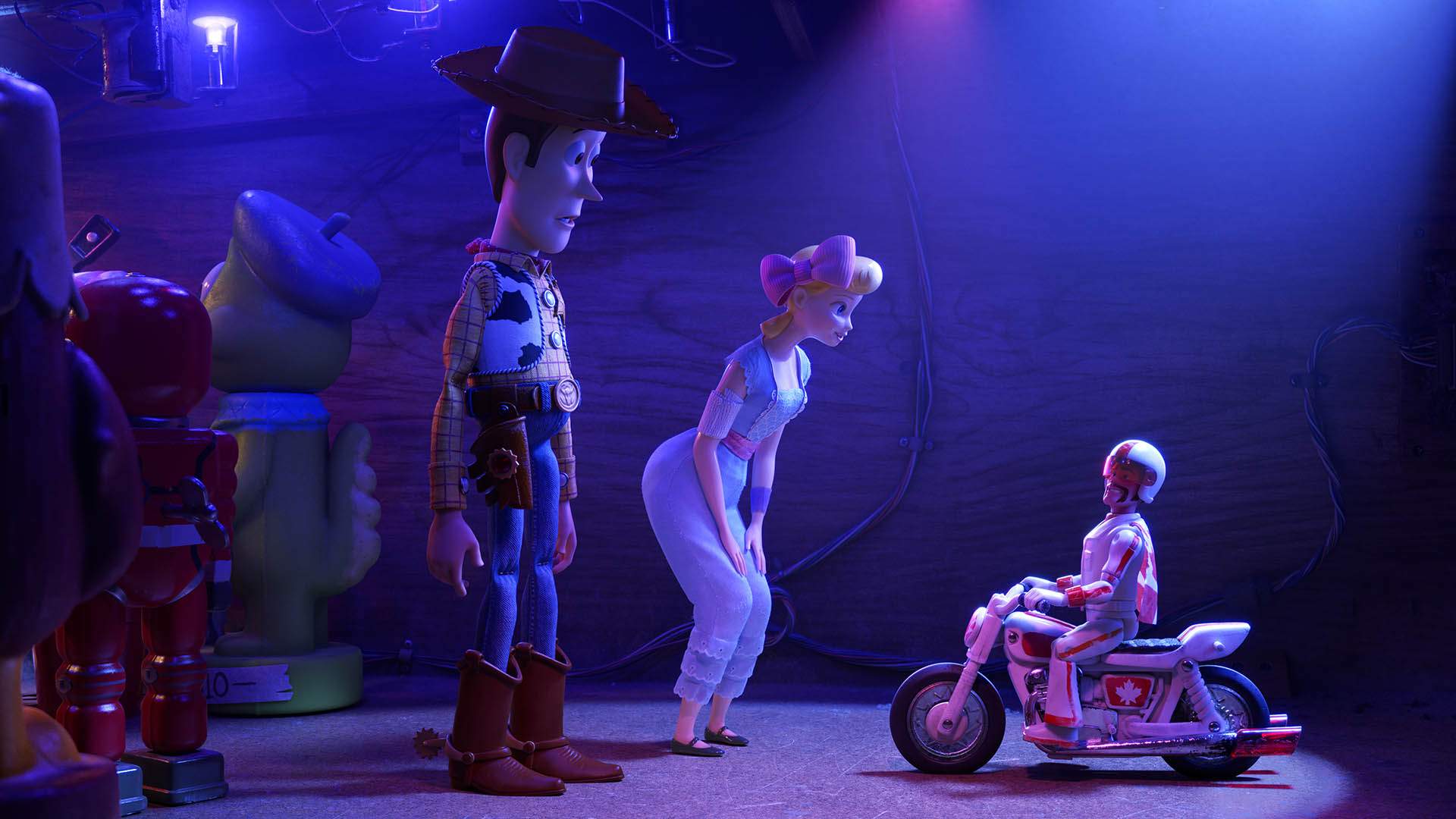Toy Story 4
Engaging, amusing and emotionally rewarding, this animated franchise is back to its best.
Overview
UPDATE, August 12, 2020: Toy Story 4 is available to stream via Disney+, Google Play, YouTube and iTunes.

With Toy Story 4, Pixar returns to the franchise that brought it to fame. Nine years after their last cinematic adventure, the animation studio takes beloved cowboy Woody (voiced by Tom Hanks) back out of the toy box, alongside his nemesis-turned-friend Buzz Lightyear (Tim Allen) and their other fun-sized pals. On paper, it's a familiar, frequently used and hardly surprising move. While the Disney-owned company was once famous for championing new stories, its slate has been filled with follow-ups of late — this is a time when sequels, spin-offs, remakes and revivals monopolise our viewing, and when successful sagas seem like they could stretch on forever, after all. But in the process of giving the world its fourth Toy Story movie, Pixar does something that few others are even willing to contemplate: it offers up a farewell.
Since it burst onto screens in 1995, the Toy Story series hasn't been afraid of goodbyes. It hasn't been frightened by the fact that everything evolves and comes to an end, either. The saga's first film contemplated the idea that Woody's time at the top of the pile might be over, with his owner Andy seemingly choosing a new favourite in Buzz. How Woody coped with his potential ousting drove the entire narrative, while similar themes of displacement, loss and moving on also featured in both 1999's Toy Story 2 and 2010's Toy Story 3. Wrapping up the franchise, Toy Story 4 continues the trend — contemplating what it means to realise that a part of your life is finishing, to embrace an unknown future, and to do so on your own terms.
With Woody and company now the property of kindergarten-aged tyke Bonnie (Madeleine McGraw), much has changed in the Toy Story realm. All-too-often, the cowboy is stripped of his sheriff's badge and left in the cupboard during playtime — and his status slips further when, after sneaking into her backpack on her first day of pre-school orientation, Woody unwittingly helps Bonnie make another friend out of a plastic spork. Forky (Tony Hale), as she names the new critter, is now the number one plaything. Alas, to Woody's dismay, the Frankenstein's monster-esque piece of cutlery would rather be trash. When Forky attempts to escape to freedom during a family road trip, Woody puts Bonnie's best interests at heart and jumps out of the RV after him, embarking on an adventure to bring the spork back.
Every child has screamed with sadness and anger when they've misplaced their favourite toy, and anyone who says they didn't when they were a kid is lying. Today, plenty of adults do the same thing — it's just called social media. Toy Story 4 director Josh Cooley shows how Bonnie reacts when she realises that Forky is missing, however with a smart story credited to seven other writers (including initial Toy Story director John Lasseter, Wall-E's Andrew Stanton and Parks and Recreation actor Rashida Jones), the film also delves further into loss, change and their impact. Via Woody's own journey, it examines what this process genuinely feels like when you're facing these experiences head-on and with purpose, rather than simply throwing a tantrum. You could say that the movie grapples with its own place in the pop culture domain, too, and you'd be correct. Given that its original viewers have literally grown from toddlers to adults over the franchise's run, encouraging them to break out of their entertainment comfort zones is a particularly savvy touch.
Reflective, sweet, sensitive and virtually guaranteed to wring a response out of even the most cynical of viewers, Toy Story 4 is a classic Pixar piece as a result — the type of film that lets humans work through the complicated feelings they usually bury deep, all by watching animated toys express sentiments we rarely have the courage to utter, and tussle with topics we'd much rather ignore. It's a layered piece of storytelling also, with subplots involving Bo Peep's (Annie Potts) blossoming independence and 50s-era newcomer Gabby Gabby's (Christina Hendricks) quest to be loved each delicately and astutely handled. Both narrative threads tie into the movie's overarching message as well: that continuing on as usual, just because that's easy and safe, is rarely the best option.
You can't take the 'toy' out of Toy Story, of course, not that Pixar would want to. At its best, this saga is as imaginative, amusing and fun as it is thoughtful, with bright, bouncy animation to match — and, returning to the heights of the first film, the franchise is at its best again here. With anarchic stuffed toys voiced by Keegan-Michael Key and Jordan Peele, plus the one-and-only Keanu Reeves lending his slow-spoken swagger to charismatic daredevil figurine Duke Caboom, the series doesn't lack in spark or laughs. Visually, it doesn't forget to pair its story with vivid images, plenty of detail and a plethora of top cinematic nods either. And while melancholy may reign supreme, it's earned. That's the reality of sifting through nostalgia, remembering what's come and gone, and knowing that the future will always be different. More Toy Story fare may eventually hit screens, because money, however this fourth toy box tale well and truly provides a perfect ending.





